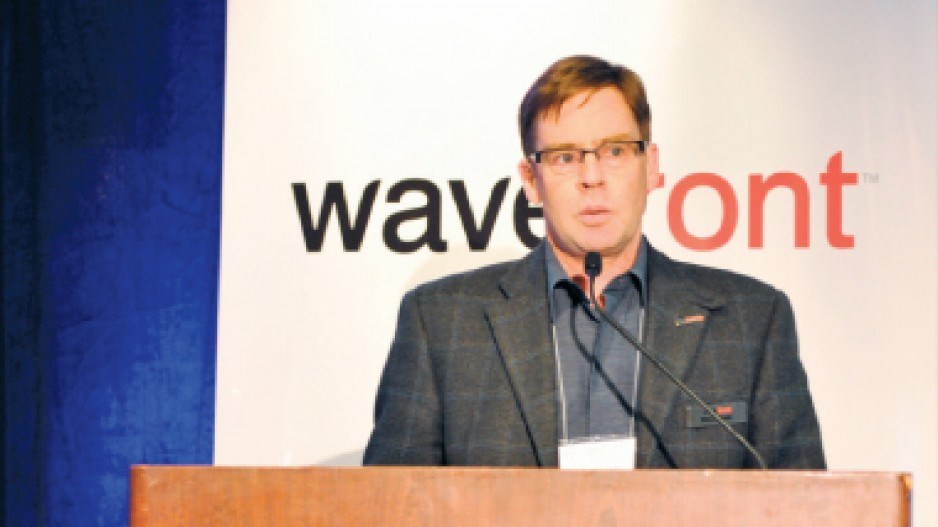Smartphones a bit like the people who designed them: really smart, maybe not so tough.
They don’t like rain (don’t even think of dropping one in the ocean), don’t work well at high altitude and can shatter when dropped.
Adrenaline junkies of all stripes will therefore be keen to know about a new smartphone for adventurers designed by a Vancouver-Helsinki team of laid-off former Nokia employees.
The Adaia smartphone is shock-proof, can survive being submerged up to 10 metres in seawater, works at altitudes of 9,000 metres, comes with detailed topographical maps and is satellite enabled, allowing text to be sent (but not received) from anywhere in the world.
“We just got tired of destroying our phones,” said Adaia co-founder and CTO Rob McGarry.
McGarry and his former Nokia partners are all involved in adventure sports, so they had identified a yet-to-be-filled niche: combat-tough smartphones.
They also had the time to work on the new device, because they had all lost their jobs with Nokia.
Fortunately, they got some help starting new their enterprise from Wavefront and Nokia itself.
Adaia is one of eight startups founded by former Nokia employees that are getting some help from Wavefront’s Venture Acceleration Program (VAP).
Partially funded by the BC Innovation Council, the program gives startups access to resident executives and helps them identify potential markets and customers. Participants also get access to Wavefront’s testing lab and mobile handset library.
One of the program’s resident executives is Brad Lowe – another former Nokia executive. Lowe ran Nokia’s Burnaby facility, which made hardware for Nokia phones. He left in 2009, during the first round of cutbacks at Nokia, and joined Wavefront.
Before Lowe left, Nokia employed more than 400 people in Burnaby.
In 2009, Nokia shut down its Burnaby hardware division, leaving only its software research centre. Then, last year, Nokia announced it was closing the software research centre, as well, resulting in another 200 people losing their jobs.
Wavefront worked with Nokia to try to help keep some of Nokia’s DNA in Vancouver.
“We’ve got a bunch of highly skilled people who spent years working for a global powerhouse in mobility, and we wanted to see that those people – if they were interested – continue to build on that and start new companies that would keep those jobs in British Columbia,” Lowe said.
“To Nokia’s credit, they put in place this program to try to get people into new jobs. I always joke that there’s no better place to be laid off from than Nokia.”
Nokia held a competition, with the outgoing employees who pitched the best ideas for a new business receiving $35,000 in seed funding.
If the business idea was something in the wireless space, Wavefront granted the winners automatic admission to VAP.
With its new adventure phone now in beta testing – but not yet ready to be revealed publicly – Adaia is the most advanced of Wavefront’s Nokia startups (see sidebar). It has four employees in Vancouver, working out of Wavefront, and 16 in Helsinki. •




